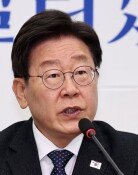Piketty warns Koreans against overspending on private education
Piketty warns Koreans against overspending on private education
Posted September. 22, 2014 01:52,
Capital in the Twenty-First Century authored by Thomas Piketty, professor at the Paris School of Economics, takes literature as an example. The most frequently mentioned novel is Honore de Balzacs Father Goriot (Le Père Goriot). It is a story about the elderly Goriot, who is taken advantaged by his two greedy and vulgar daughters, and Rastignac, a young aristocrat from a rural area who gets closer to his daughters for success. Piketty compares the inequality of the time of Jane Austin (1775-1817), a British writer, and todays inequality and explains that inequality has not improved at all.
The fortune of Bill Gates, who has been the richest man for more than a decade according to Forbes, rose from 4 billion U.S. dollars from 1990 to 50 billion dollars in 2010. Liliane Bettencourt, a French heiress of LOreal who has never worked since she was born, saw her wealth increase from two billion dollars to 25 billion dollars for the same period of time. Pikettys anger is targeted at Bettencourt, not Gates. His solution to stop inherited wealth is, surprisingly, strengthening public education as well as global wealth tax.
In an interview with the Dong-A Ilbo, he warned Koreas spending on private education. Koreas education contributed to the growth of the economy but now, spending for private education is aggravating the inequality in education. Spending on private education in Korea is 18.6 trillion won (17.8 million dollars) in total as of 2013. Actual spending is much higher than this, but the bigger problem is that richer people spend more money on private education. Now, education has become a tool to pass down ones wealth to ones children, rather than a ladder for social mobility.
Piketty says that public education should be increased to help low-income people have quality education to stop inherited wealth. Unfortunately, the Park Geun-hye administrations education policy is moving backwards. Next years budget does not include 240 billion (229 million dollars) for free education in high schools, 660 billion won (631.8 million dollars) for after-school programs in elementary schools, and 2.15 trillion won (2.06 billion dollars) for childcare programs. The government removed childcare programs, which is cost-effective, and added the budget for college students to sponsor half of their college tuitions. There is a lot of controversy over whether Pikettys economic model fits in Korea but at least his advice on Korean education is worth listening to.







